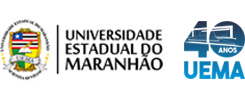Use este identificador para citar ou linkar para este item:
https://repositorio.uema.br/jspui/handle/123456789/2687| Título: | O Ensino da Língua Portuguesa em contraste da Educação Indígena tradicional e atual na Aldeia Januária |
| Título(s) alternativo(s): | Teaching the Portuguese Language in contrast to Indigenous Education traditional and current in Aldeia Januária |
| Autor(es): | Maciel, Guilherme Gonçalves Guajajara, Ivanilson Caragiu |
| Orientador: | Cunha, Robson de Macêdo |
| Membro da Banca: | Ribeiro, Daniel Rodrigues |
| Membro da Banca: | Nascimento, Fagner Gomes do |
| Data do documento: | 2024-02-08 |
| Editor: | Universidade Estadual do Maranhão |
| Resumo: | O trabalho vem abordar o desafio contemporâneo do ensino de língua portuguesa na educação indígena, destacando sua evolução e transformações no contexto da Aldeia Januária, localizada na Terra Indígena Rio Pindaré, Maranhão. Inicialmente, o ensino era permeado pela assimilação e aculturação, com currículos padronizados e professores não indígenas, ignorando a cultura local. Atualmente, há uma busca por uma abordagem intercultural, bilíngue e participativa, valorizando línguas indígenas e formando professores indígenas. O estudo propõe investigar como as políticas públicas influenciam o currículo do ensino da língua portuguesa na educação indígena, considerando possíveis mudanças ao longo do tempo. Destaca-se a importância de respeitar a cultura e os conhecimentos dos povos indígenas, evitando imposições culturais, e a necessidade de uma educação contextualizada e adaptada às especificidades de cada comunidade. A fundamentação teórica abrange a historicidade da educação indígena no Brasil, avanços no Maranhão, o papel das línguas indígenas e portuguesa, em ocorrências de: Brasil (1988; 1991; 1996; 2018), Grupioni (2015), Lobo (2018), Maranhão (2004; 2021; 2024); Mori (2021); Sousa (2020) entre outros autores. A metodologia incluiu pesquisa qualitativa, entrevistando membros da comunidade escolar para analisar a evolução do ensino de língua portuguesa, contrastando a educação indígena tradicional e atual. Os resultados revelaram avanços na formação de professores indígenas, ampliação do sistema educacional na aldeia e esforços para reintroduzir a língua indígena. A visão dos estudantes ressalta a importância de ambas as línguas para preservar a cultura e aprender estrutura gramatical abrangente. E os desafios persistem em equilibrar o ensino de língua portuguesa com a preservação cultural, enfatizando a interculturalidade e a valorização das línguas indígenas. Com isso, este estudo destaca uma mudança positiva na abordagem do ensino de língua portuguesa na Aldeia Januária, contribuindo para compreender desafios e avanços na educação indígena. O equilíbrio entre preservação cultural e educação em língua portuguesa emerge como uma questão crucial para um diálogo educacional mais significativo e respeitos |
| Resumo: | This paper addresses the contemporary challenge of Portuguese language teaching in indigenous education, highlighting its evolution and transformations in the context of Aldeia Januária, located in the Rio Pindaré Indigenous Territory, Maranhão (Brazil). Initially, education was permeated by assimilation and acculturation, with standardized curricula and non-indigenous teachers, overlooking the local culture. Currently, there is a quest for an intercultural, bilingual, and participatory approach, valuing indigenous languages and training indigenous teachers. The study aims to investigate how public policies influence the curriculum of Portuguese language teaching in indigenous education, considering possible changes over time. The importance of respecting the culture and knowledge of indigenous peoples is emphasized, avoiding cultural impositions, and the need for education contextualized and adapted to the specificities of each community. The theoretical framework covers the historicity of indigenous education in Brazil, advances in Maranhão, the role of indigenous and Portuguese languages, with references to: Brazil (1988; 1991; 1996; 2018), Grupioni (2015), Lobo (2018), Maranhão (2004; 2021; 2024); Mori (2021); Sousa (2020), among other authors. The methodology involved qualitative research, interviewing members of the school community to analyze the evolution of Portuguese language teaching, contrasting traditional and current indigenous education. The results revealed advances in the training of indigenous teachers, an expansion of the educational system in the village, and efforts to reintroduce the indigenous language. The students’ perspective highlights the importance of both languages to preserve culture and learn comprehensive grammatical structure. Challenges persist in balancing Portuguese language teaching with cultural preservation, emphasizing interculturality and the valorization of indigenous languages. Thus, this study highlights a positive change in the approach to Portuguese language teaching in Aldeia Januária, contributing to understanding challenges and advances in indigenous education. The balance between cultural preservation and education in the Portuguese language emerges as a crucial issue for a more meaningful and respectful educational dialogue |
| Palavras-chave: | Educação Indígena Língua Portuguesa Língua Indígena Cultura e aculturação Povos originários - Aldeia Januária, MA Formação de professores Língua - fator social Políticas Públicas - língua indígena e portuguesa Indigenous Education Portuguese Language Indigenous Language Culture and acculturation Original people - Januária village, MA Teacher training Language - social factor Public Policies - indigenous and Portuguese language Aldeia Januária - MA |
| Aparece nas coleções: | Curso de Licenciatura em Letras Língua Portuguesa e Língua Inglesa e Literaturas - Santa Inês UEMA - Monografias |
Arquivos associados a este item:
| Arquivo | Descrição | Tamanho | Formato | |
|---|---|---|---|---|
| TCC - GUILHERME GONÇALVES MACIEL; IVANILSON CARAGIU GUAJAJARA - LETRAS LÍNGUA PORTUGUESA, INGLESA E LITERATURAS CAMPUS SANTA INÊS UEMA 2024.pdf | PDF A | 1.55 MB | Adobe PDF | Visualizar/Abrir |
Os itens no repositório estão protegidos por copyright, com todos os direitos reservados, salvo quando é indicado o contrário.
